As a food blogger, you probably already pay attention to things like SEO titles, keyword research, schema basics, and satisfying search intent, when it comes to SEO.
But, did you know that who you are as an author is also really important?
In this post, we explain the role of E-E-A-T (experience, expertise, authoritativeness and trustworthiness) and authorship in food blogging, and share 5 tips to boost your E-E-A-T immediately.
Whether you’re a baker-turned-blogger who’s churning out your favorite cookie and cake recipes, or a registered dietitian focused on offering go-to nutrient-packed recipes, your own experience, background and credentials can potentially translate into better rankings and more traffic. Exercising your E-E-A-T can also help you maintain top ranking positions already earned.
What is E-E-A-T?
E-E-A-T stands for experience, expertise, authoritativeness, and trustworthiness.
To be a successful food blogger today, you’ve got to have the E-E-A-T to compete. E-E-A-T is a concept that Google uses to better understand content quality and an author’s authority.
Experience
Google increasingly values examples of first-hand experience in posts. Embrace the practice of teaching a reader how to make your recipe with step-by-step photos, rather than just telling the reader what to do with your words.
Expertise
Expertise is about being knowledgeable in a certain area or topic. If you used to work as a pastry chef and now have a baking blog, you could be said to have expertise in baking. If you’re a dietitian that runs a food blog, you could be said to have expertise in well-balanced meals, healthy recipes, and the benefits of specific ingredients.
Authoritativeness
Authoritativeness has to do with being a go-to place for people to get quality, in-depth information about a certain topic. The backlinks you earn, plus what’s written about you and your recipes on the web also contribute to authoritativeness.
Trustworthiness
Trustworthiness is all about people being able to trust you to share accurate and useful information. Trustworthiness also means that you don’t try to game the Google algorithm (i.e., by building unnatural links).
Through E-E-A-T, Google is able to better understand, study and verify if content comes from reliable sources. And though E-E-A-T is not a known ranking factor that can be measured, E-E-A-T is used by Google in evaluating every single search query.
Think of it as an umbrella term that describes a range of signals that Google uses to understand content and content author.
In Google’s Quality Raters’ Guidelines, it’s made clear that E-E-A-T is very important (resource).
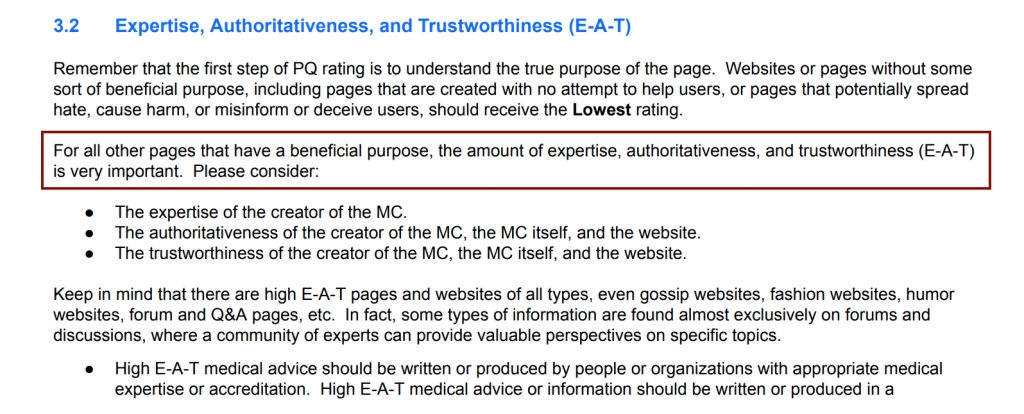

E-E-A-T as a concept becomes much easier to understand when we look at it through the lens of a medical or financial planning site.
For obvious reasons, Google does not want medical advice online shared by individuals with no medical credentials, or financial planning advice shared by individuals with no financial expertise. It wants top search engine results on these subjects to come from sources with experience and expertise in those field.
Why E-E-A-T matters for food bloggers
It’s competitive out there. Any time you can take small steps to help Google better understand the contents of a page or post, or the author of those pages and posts, it’s worth doing.
When it comes to recipes and articles about nutrition, authorship is one of the best ways to send clear signals to Google about who you are, and what you’re a credible expert and authority in.
While E-E-A-T affects food bloggers in many ways, below are two areas where E-E-A-T (or the lack of it) commonly comes up for Foodie Digital members:
1. Nutrition facts and health claims
One slippery slope for food bloggers has to do with sharing nutrition and health-related information within recipe posts. Remember that Google wants the top search results to reflect trusted sources with expertise on a particular topic.
If you’re someone who often shares nutritional information in your posts and are not a qualified dietitian or nutritionist, consider having your posts reviewed by someone with the right qualifications.
The expertise of the person reviewing should be closely aligned with the content of the post. For example, if the post is talking about the health benefits of eating chickpeas, having a registered dietitian review it is the right move. If the post talks about the health benefits of chickpeas for children specifically, you’ll want to work with a dietitian who specializes in pediatric nutrition.
Similarly, even if a certain food or eating style has personally helped you with a health issue, it isn’t the same as having a qualified expert review your content.
2. Authorship and contributors
Do you have a good sense of your site’s authorship situation?
Maybe you publish only your own recipes, and you’re the only author on your site.
Maybe you love bringing in contributors every once in a while. Or perhaps you have plenty of regular contributing authors who support you. Either of these options is totally fine, but it’s important to clearly demonstrate who the author of a recipe is on your food blog.
For food bloggers, authorship can be a complicated topic.
For example, how much does a recipe need to be adapted before it becomes your own?
In this useful blog post by David Lebovitz, he shares a few guidelines for authorship. If you’re a food blogger, we highly recommend giving it a read.
At Foodie Digital, we believe it’s best to err on the side of caution and be abundantly clear about who the author of a recipe is — both in your posts and in your recipe structured data.
Maybe your post was adapted from a recipe by another food blogger, or maybe it was inspired by a cookbook author. Making this information explicit is industry best practice.
5 tips to boost your E-E-A-T
These tips are easy to implement and can help you strengthen your E-E-A-T almost immediately:
1. Establish a subject matter area of expertise
Make it clear to readers and robots what you’re an expert in. Whether it’s meal prep recipes or vegan recipes or baking cakes, be intentional and make it obvious. A clear, organized category structure is an excellent way to strengthen crawl accessibility and demonstrate topical authority.
If you don’t currently have a niche, or clear subject matter expertise, start brainstorming!
It’s strongly recommended that you work with information architecture specialists (that’s us!) to strengthen your site’s category structure.
2. Mention your credentials on your About page
If you’re a nutritionist, a registered dietitian, or a culinary school graduate, don’t be shy!
If you’ve won any awards or have been featured in any notable publications, these are also great to highlight on your site. Mentioning your credentials and your accomplishments on your About page can help you boost your E-E-A-T because you’re sharing clear information with readers and robots about your accomplishments.
3. Understand where your expertise stops
Be thoughtful about your choice of words and the advice you share with your online community. For example, if you aren’t a qualified dietitian or nutritionist, it isn’t a good idea to talk about the nutritional content of food.
4. Include your first and last name in your recipe card’s author field
When you’re filling out your recipe card plugin, it’s best practice to write the recipe author’s first and last name in the author field. By doing this, you’re using recipe structured data to its fullest capacity and to your advantage.
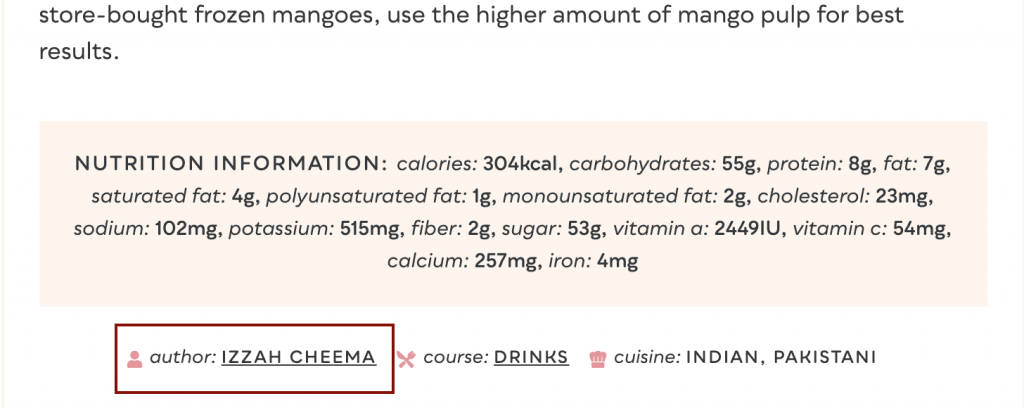
Including author name in your structured data tells Google exactly who the author of the recipe is, which makes it easier to connect you with other authority signals, such your Instagram, Facebook and Pinterest profiles.
Rather than including the name of your food blog (if Yoast SEO is configured correctly, Google knows the name of your organization), using first and last name is a simple and effective way to spoon-feed Google valuable information about you, the recipe author.
Notice “Mary Stone” is the author of the Party Coffee Cake recipe in Google’s own recipe structured data example (resource).
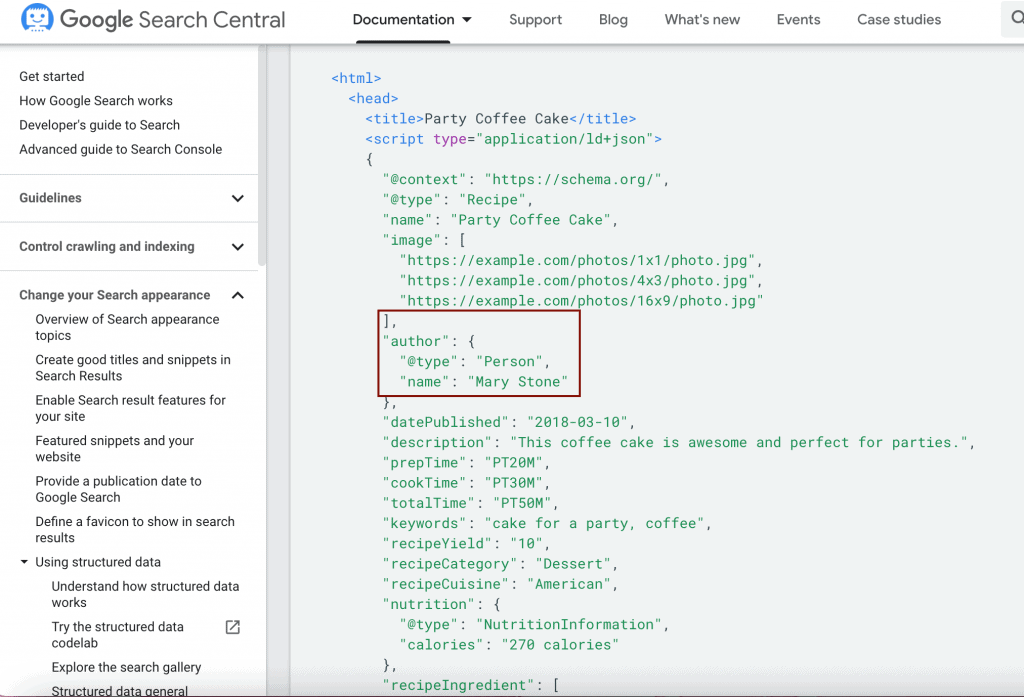
5. Add AboutPage schema to your About page
In Yoast SEO, it’s possible to describe your food blog’s “About” page specifically as an “About page” using AboutPage schema, which is more precise than the default value of “Web Page” attributed by Yoast. This is an easy, quick change done in Yoast SEO’s schema tab on your About Page.
Note that this example assumes that you use Yoast SEO and that the plugin is up to date.
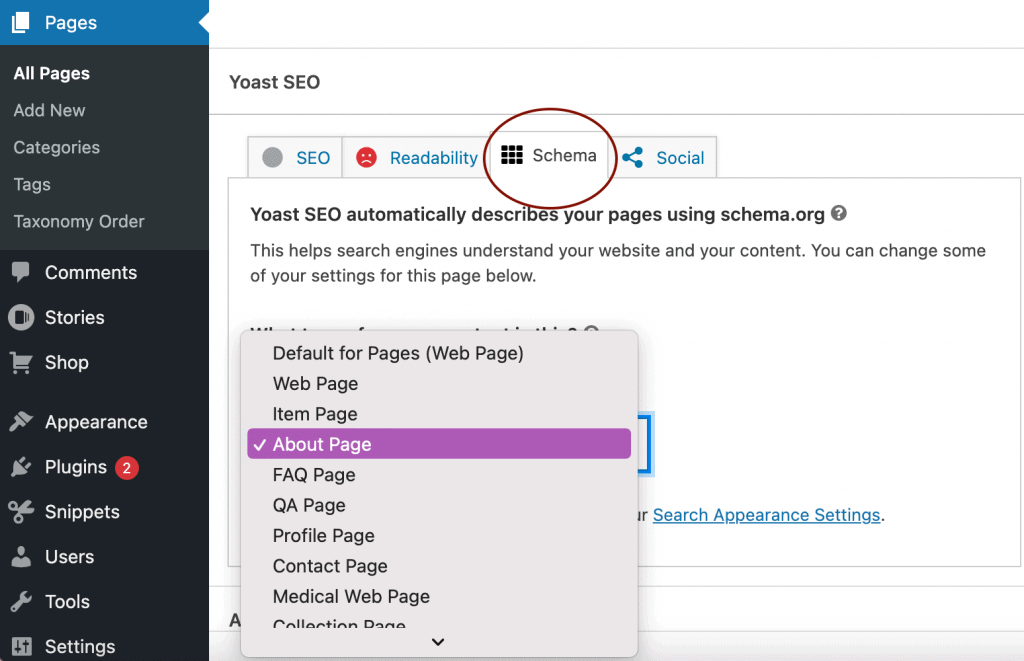
E-E-A-T and authorship are topics that play into almost everything having to do with SEO.
And like all things SEO, there are seemingly endless ways to optimize for it. The tips above are just a few easy-to-implement ideas.
To gain valuable insights into your individual opportunities with E-E-A-T, join the FD mailing list today.
Note: Foodie Digital participates in affiliate programs for select recipe card plugins and hosting providers. The opinions we share are based on our own in-depth research, and the ongoing need for our members to use SEO tools that are future-proofed, credible, professional and well supported.





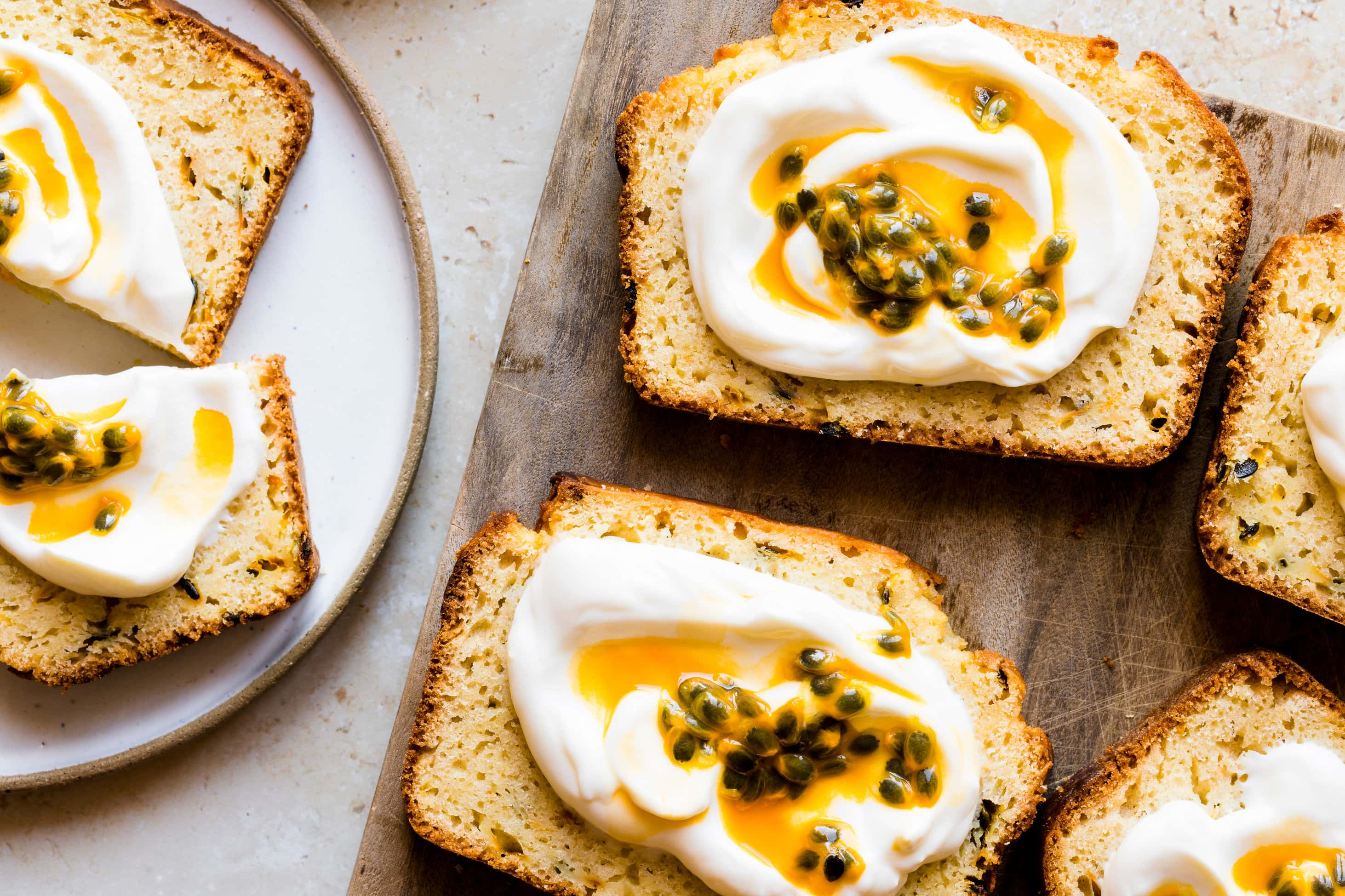



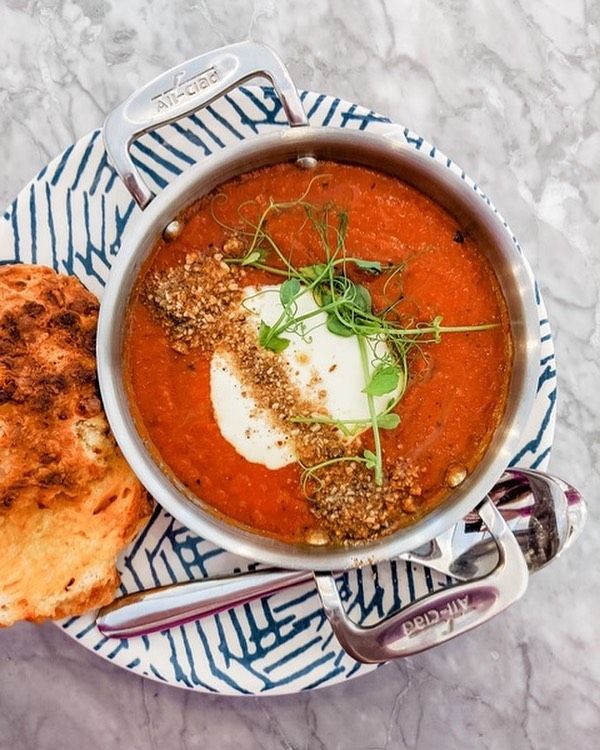



Great read FD – super informative and has given me oodles to think about.
Thanks for this information. Going to update my blog today!!!
Marie